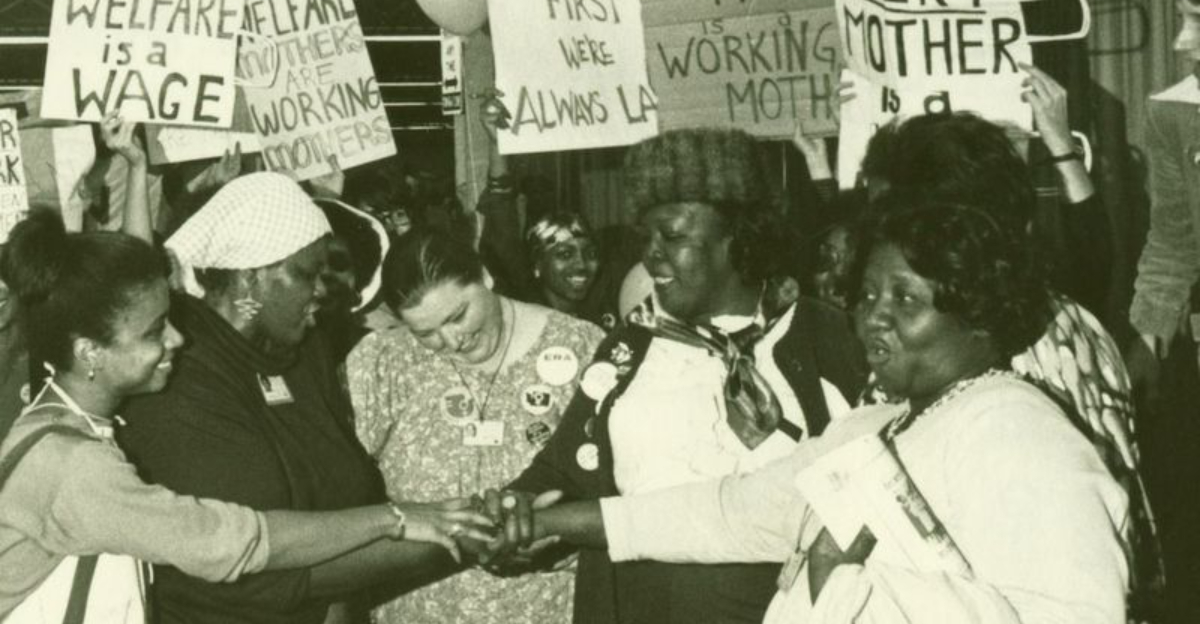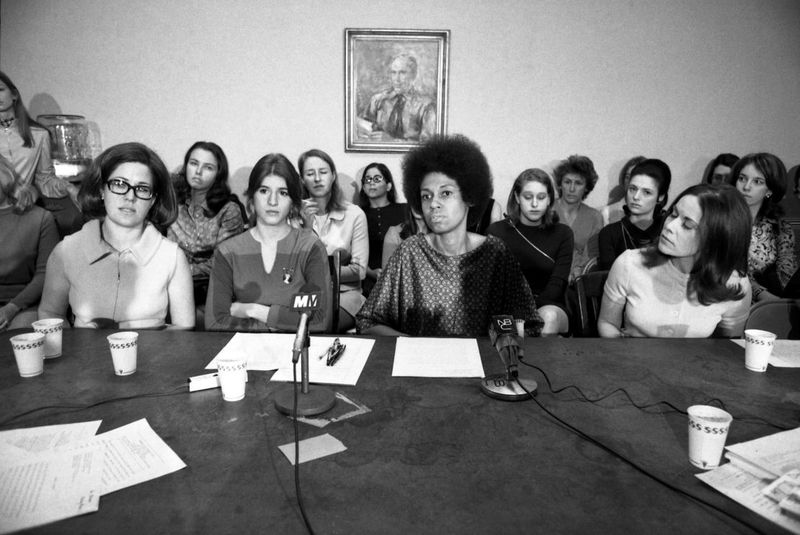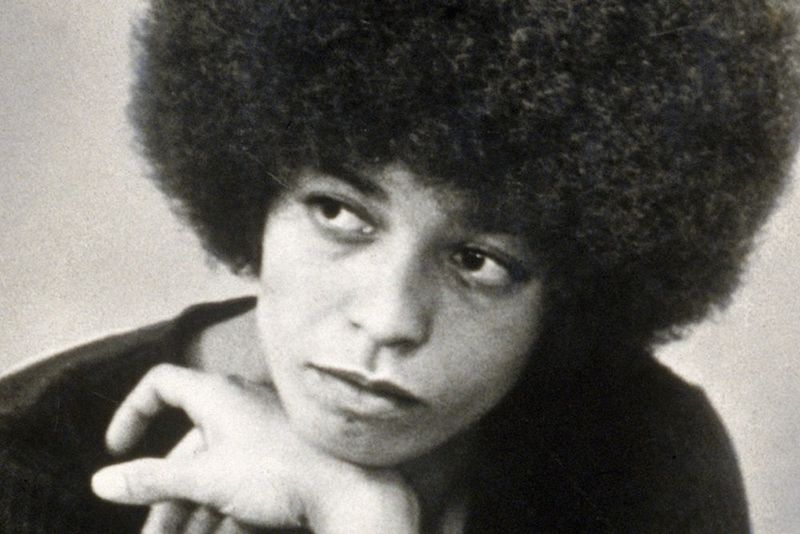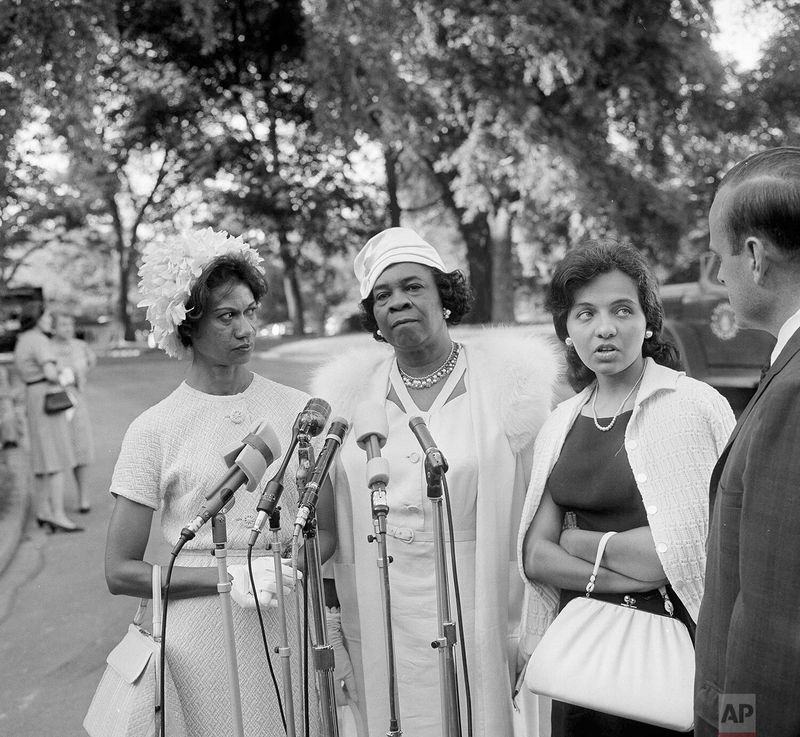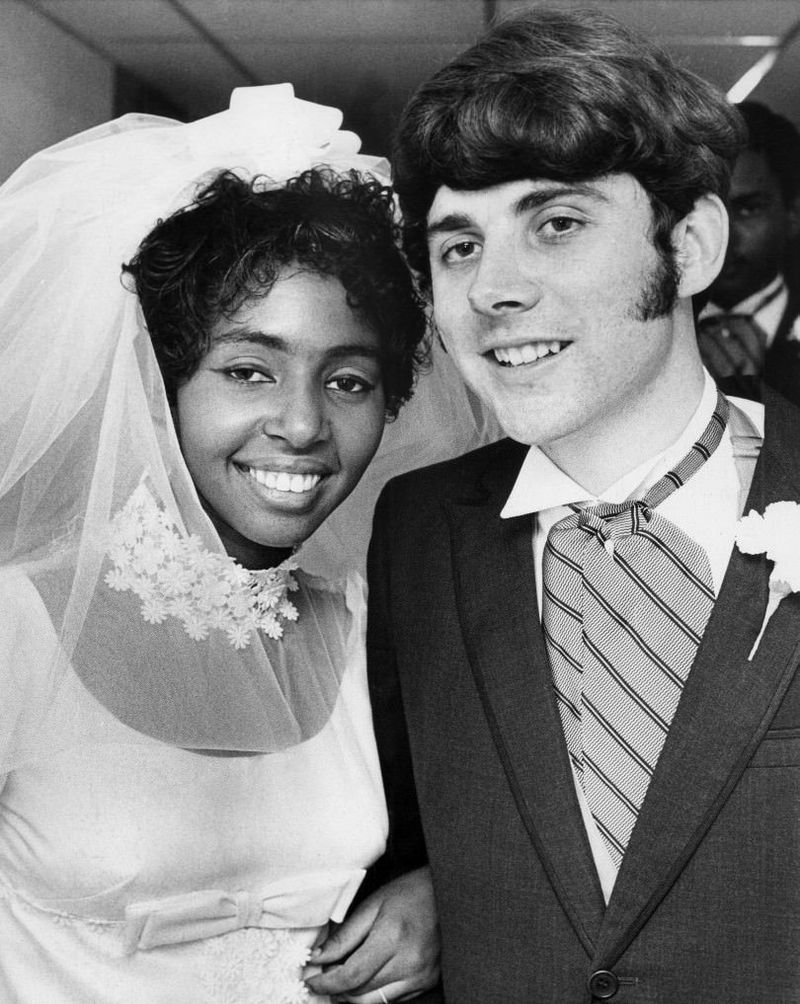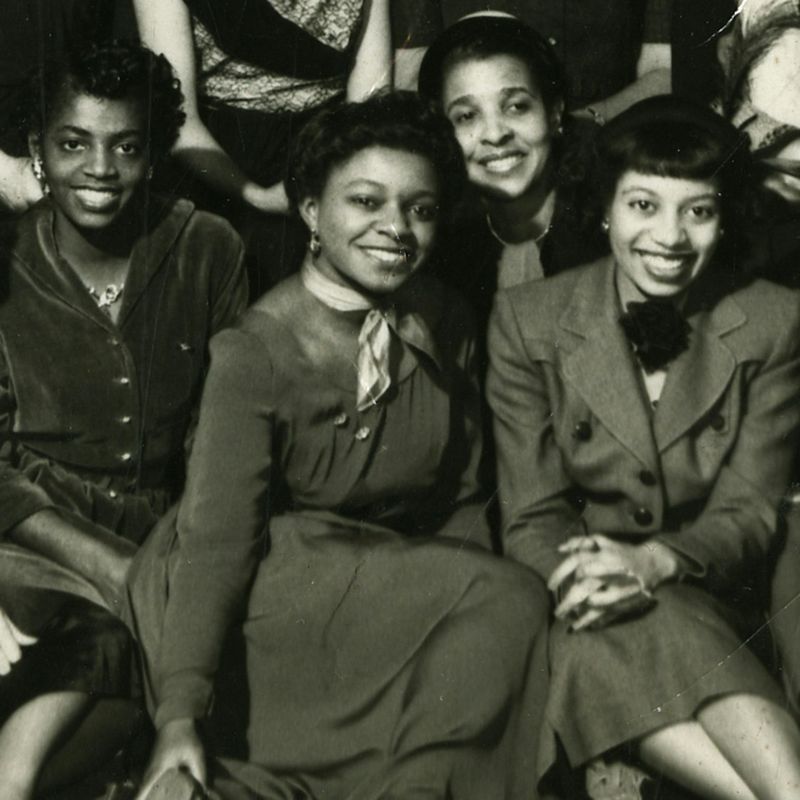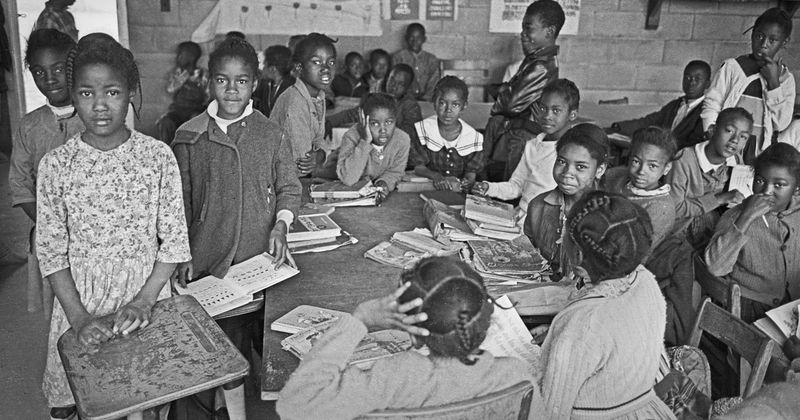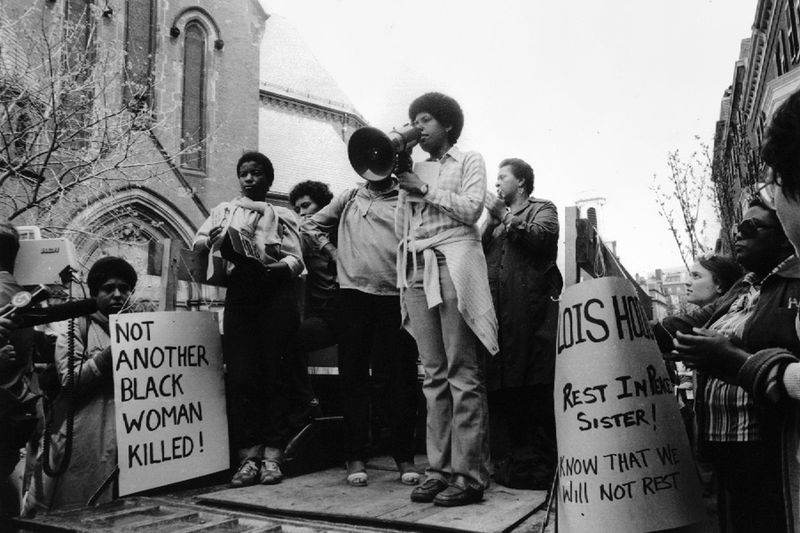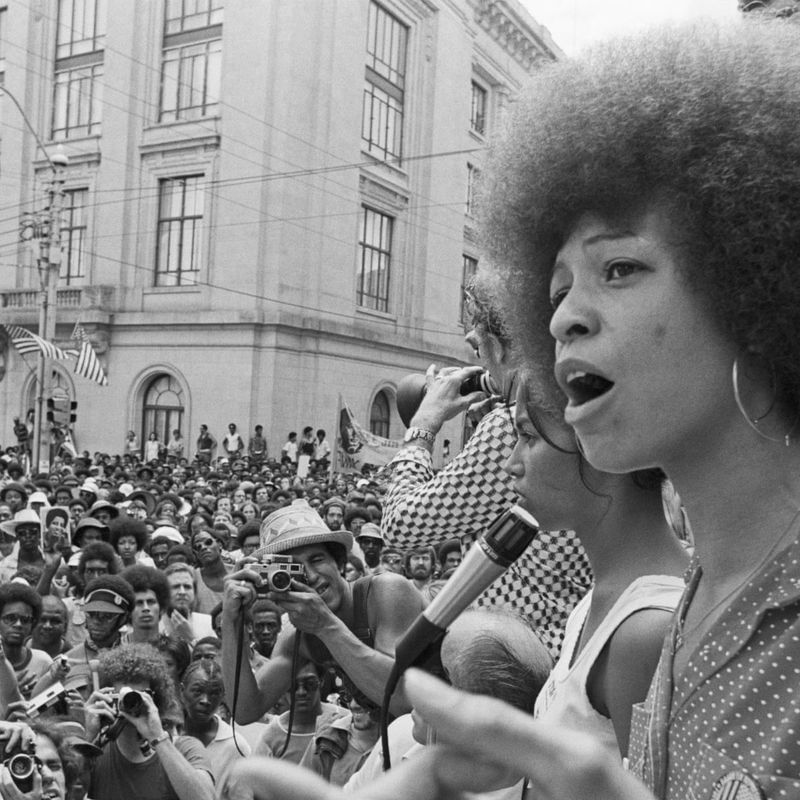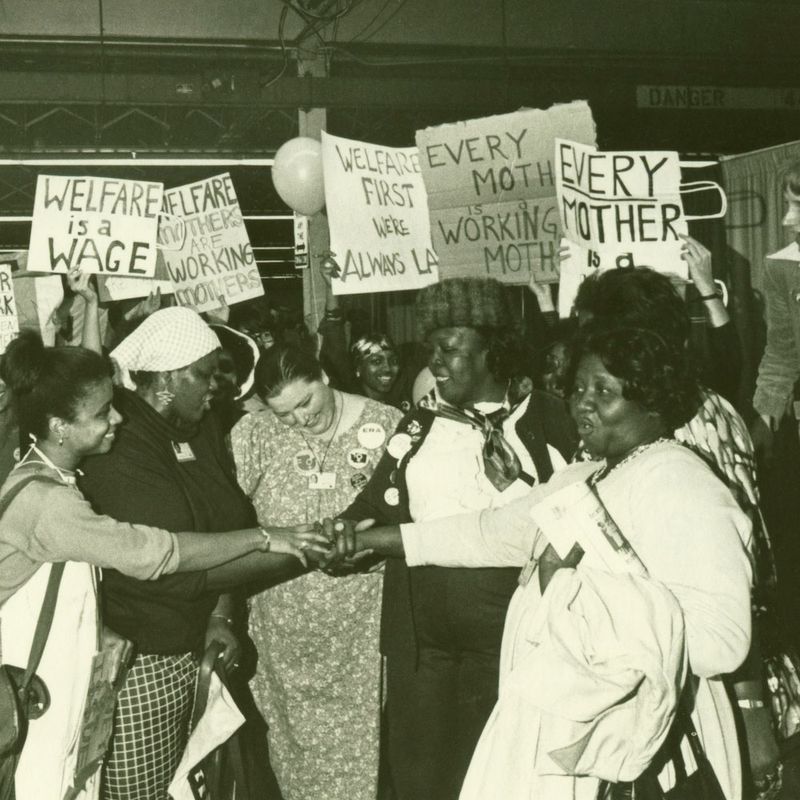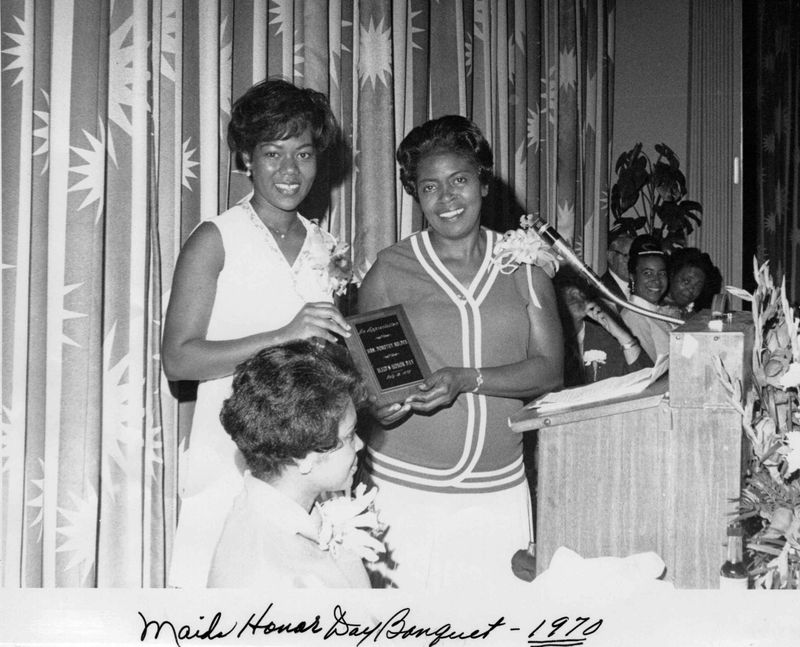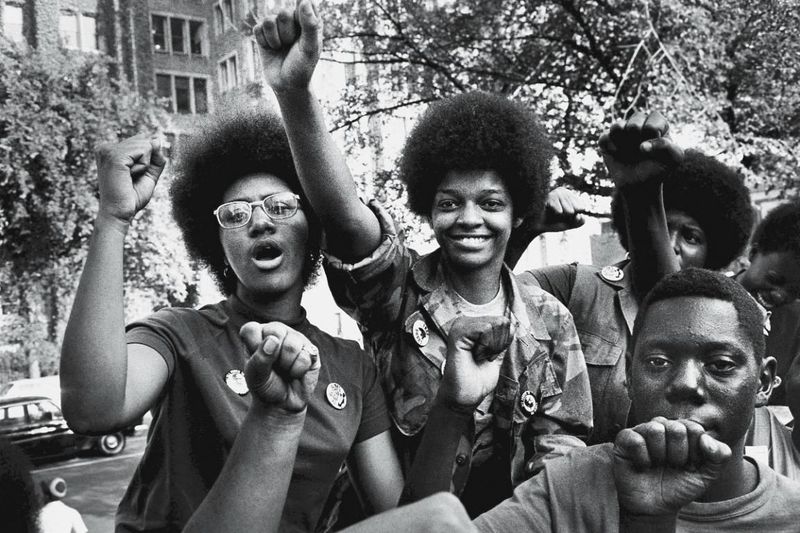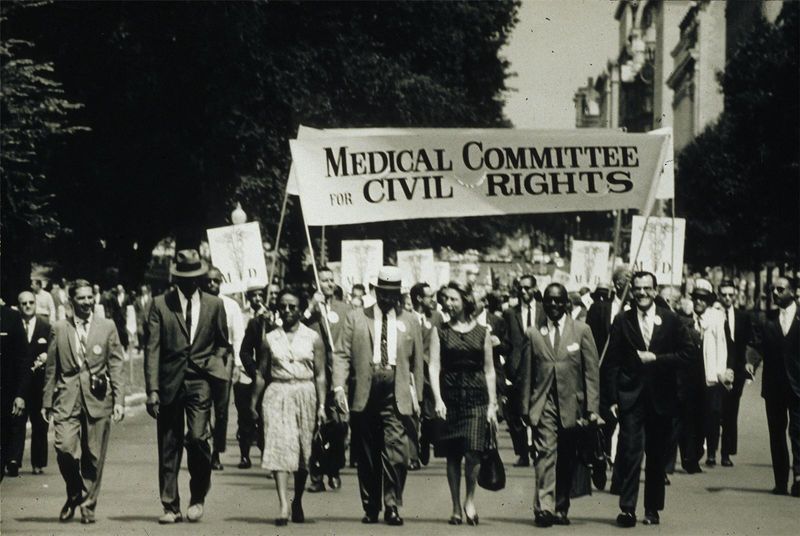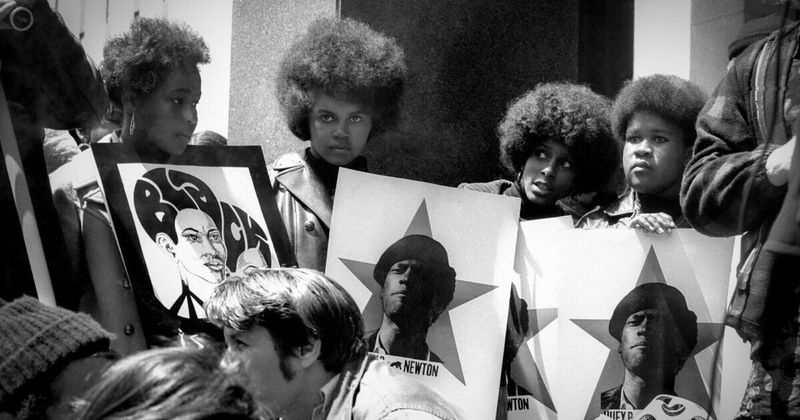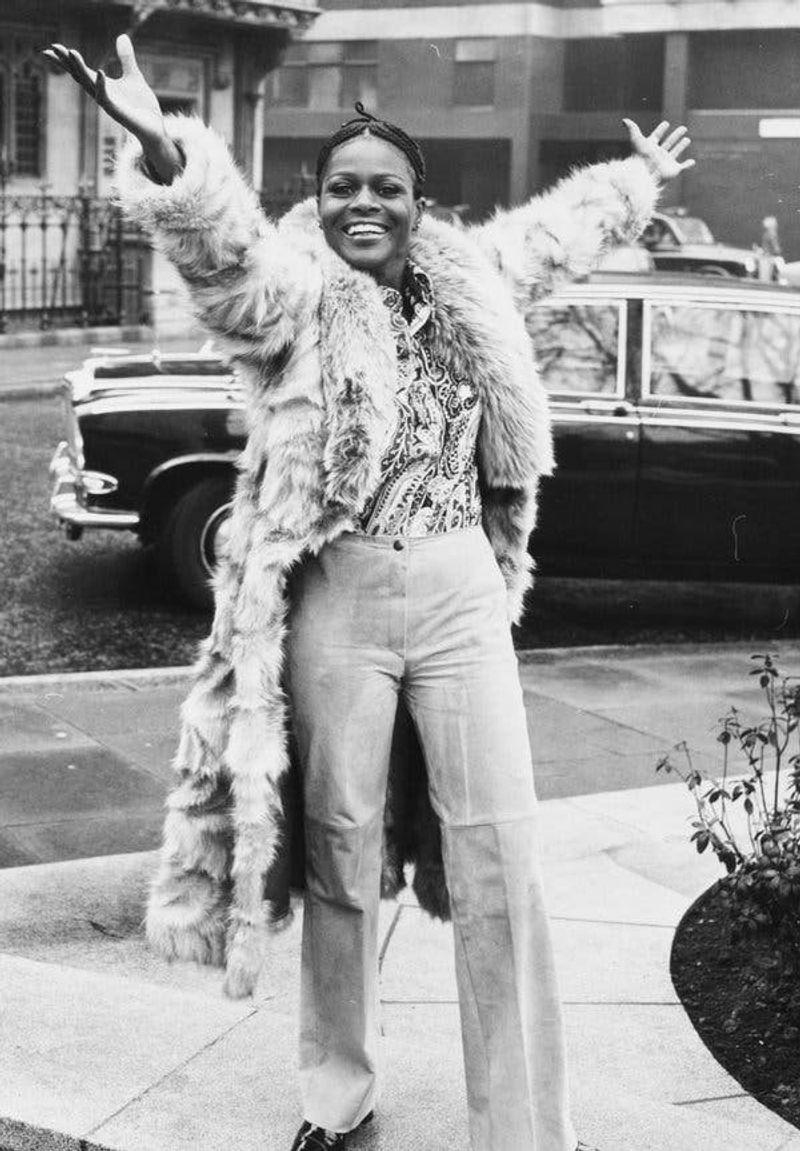The 1970s were a tumultuous time for Black women in America. Navigating a complex web of societal norms and restrictions, they faced numerous challenges in their fight for equality and justice. From workplace discrimination to hair policing and forced sterilization, the rules that governed their lives were both shocking and stifling. Despite the odds, Black women continued to resist and redefine their roles in society. This blog post delves into 15 astonishing rules they had to follow during this era, shedding light on a history that deserves recognition and reflection.
1. Workplace Discrimination – “Stay in Your Place”
These women found themself confined to roles like domestic work, nursing, or teaching, with few chances for advancement. Those venturing into corporate America faced blatant racism, often being told to straighten their hair or avoid ‘ethnic’ styles to appear ‘professional.’
The expectation was to blend in, to not stand out, and to navigate a world that constantly reminded them of their ‘place.’ Yet, these women persevered, challenging norms and slowly carving out spaces where they could thrive despite the odds. Their resilience was remarkable.
2. Hair Policing – “Natural Hair Was ‘Unprofessional’”
For Black women in the 1970s, this was a harsh reality. Afros and braids were often deemed ‘radical’ or ‘unacceptable’ in workplaces and schools. The pressure to conform to Eurocentric beauty standards was immense.
Employers enforced grooming policies that explicitly banned natural Black hairstyles, deeming them unprofessional. Despite this, many women embraced their natural hair, making it a symbol of pride and identity. This resistance became a powerful statement against systemic racism and a celebration of Black culture.
3. Double Standards in Activism – “Support Black Men First”
In the vibrant world of the Civil Rights and Black Power movements, Black women were the backbone of organizing efforts. Yet, they were often expected to play supporting roles, with the spotlight on Black men. Speaking out against sexism within these groups was fraught with danger, as it could lead to accusations of ‘dividing the race.’
Despite their pivotal roles, women were frequently sidelined, their contributions minimized. However, their voices were crucial, and over time, they began to push back, demanding recognition and equality. Their strength and determination continue to inspire.
4. Forced Sterilization & Reproductive Control
In the 1970s, thousands of Black women faced the horror of forced sterilization, often without their knowledge or consent. Under racist eugenics programs, particularly in Southern states, their reproductive rights were stripped away. Welfare programs sometimes required Black women to agree to sterilization to receive benefits.
This insidious control over their bodies was a stark violation of human rights. Yet, these women fought back, raising awareness and challenging these oppressive systems. Their courage in the face of such blatant injustice paved the way for greater reproductive autonomy and rights in the future.
5. Dating & Marriage Restrictions – “Stay Within Your Race”
In 1967, interracial marriage was legalized, but Black women still faced considerable backlash for dating outside their race. The 1970s were marked by societal and community pressures to ‘stay within your race.’ Some Black nationalist groups framed relationships with white men as a ‘betrayal.’
Despite these challenges, many women pursued love across racial lines, defying societal norms. Their choices were acts of resistance against a system that sought to dictate personal relationships. They highlighted the complexity of identity and love in a racially divided America.
6. Dress Codes – “Don’t Look Too Militant”
Wearing dashikis, African prints, or Black Panther-style leather jackets in the 1970s could attract unwanted attention. Black women who embraced these styles often faced harassment from police or employers. Schools punished Black girls for wearing headwraps or braids, labeling them ‘gang-related.’
Despite these restrictions, many women chose to express their cultural pride openly, challenging the policing of their identities. Their bold fashion statements became a form of activism, symbolizing a connection to their roots and a rejection of oppressive norms.
7. Limited Access to Higher Education
For Black women in the 1970s, accessing higher education was fraught with challenges. Many were steered towards vocational schools instead of universities, limiting their opportunities. Those who attended colleges faced discrimination from professors and peers, with few support systems in place.
Despite these obstacles, numerous women persevered, fighting for their right to education. They became trailblazers, opening doors for future generations. Their determination reshaped the academic landscape, proving that knowledge knows no racial or gender boundaries.
8. Media Erasure & Stereotyping
The media landscape of the 1970s often erased or stereotyped Black women. They were rarely seen on TV or in films unless portrayed as maids, ‘welfare queens,’ or hypersexualized figures. Positive representation was scarce, with shows like ‘Good Times’ being rare exceptions.
This lack of diverse portrayals contributed to harmful stereotypes and reinforced societal biases. However, Black women in media continued to push for more accurate and varied representations, paving the way for future generations to see themselves on screen in empowering roles.
9. Police Brutality & Surveillance
Activist Black women in the 1970s, such as Angela Davis, were often targets of intense surveillance by COINTELPRO and police. Merely wearing an Afro or attending a rally could label them as ‘radicals’ under watch.
Their activism was met with suspicion, and their movements were closely monitored. Despite this, they remained steadfast in their fight for justice and equality. Their bravery in the face of police brutality and surveillance remains a testament to their unwavering commitment to change.
10. Welfare Stigma – “Lazy & Unfit Mothers”
In the mid-1970s, the ‘welfare queen’ stereotype emerged, painting Black women as frauds exploiting government aid. This stigma led to stricter welfare policies and shaming of those seeking assistance.
Despite systemic barriers to employment, many women were unjustly labeled as ‘lazy’ or ‘unfit mothers.’ Yet, they continued to care for their families, challenging these damaging narratives. Their resilience in the face of such stigma was a powerful statement against systemic racism and socioeconomic inequality.
11. Domestic Labor Exploitation
Many Black women in the 1970s worked as maids or nannies for white families, often underpaid and overworked. They were expected to care for white children while their own families went without.
This exploitation highlighted the deep racial and economic inequalities of the time. Despite these challenges, these women provided essential labor that underpinned many households, showcasing their resilience and strength. Their contributions were invaluable, and their struggle for fair treatment continues to resonate today.
12. Respectability Politics – “Be Twice as Good”
In the face of pervasive racism, Black women in the 1970s were often told to be ‘ladylike,’ quiet, and non-confrontational to avoid being labeled as ‘angry’ or ‘aggressive.’ The pressure to be ‘twice as good’ was immense.
Speaking up against injustice risked being seen as ‘difficult.’ Yet, many women chose to challenge these expectations, advocating for themselves and their communities. Their courage in embracing their true selves and standing against respectability politics was a powerful form of resistance.
13. Limited Access to Healthcare
Black women in the 1970s received substandard medical care, facing higher maternal mortality rates. Many were subjected to unethical medical experiments, such as the infamous Tuskegee syphilis study.
The lack of access to equitable healthcare highlighted systemic racism in medical institutions. Despite these barriers, many women fought for better healthcare rights, raising awareness of the disparities they faced. Their advocacy helped pave the way for improvements in healthcare access for future generations.
14. Exclusion from Feminist Movements
White-dominated feminist movements in the 1970s often ignored issues critical to Black women, such as racism, poverty, and police violence. This exclusion led many Black women to form their own organizations, like the National Black Feminist Organization.
Their efforts highlighted the intersectionality of race and gender, pushing for a broader understanding of feminist issues. Despite being marginalized, their voices brought crucial perspectives to the feminist movement, advocating for inclusivity and equality for all women.
15. The “Strong Black Woman” Burden
The stereotype of the ‘Strong Black Woman’ placed immense pressure on Black women in the 1970s to endure hardship without complaint. This expectation led to emotional and physical strain, as mental health struggles were often dismissed as ‘weakness.’
Despite these burdens, Black women continued to support their families and communities, demonstrating remarkable strength. However, the need to address mental health and self-care became increasingly recognized, paving the way for a more nuanced understanding of resilience and vulnerability.
